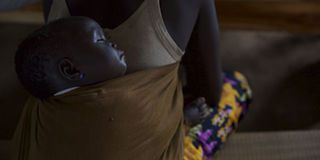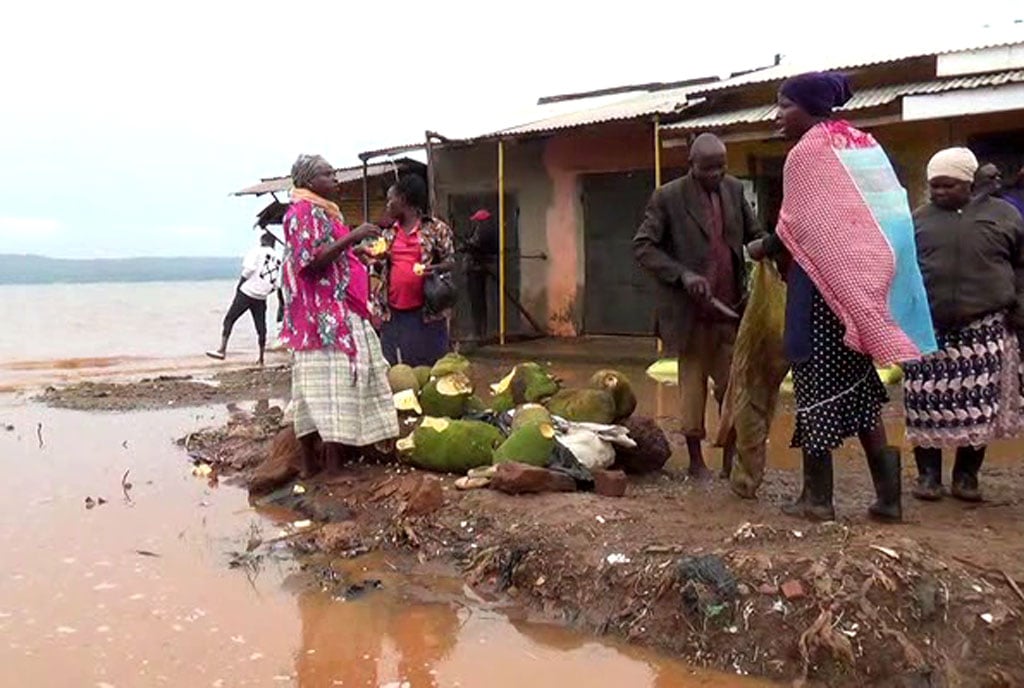Traditional healers aiding teenage abortions in Gulu

Waiting. A teenage mother waits to be attended to at one of the health centres in Gulu District. FILE PHOTO
What you need to know:
- Definition. Abortion is the ending of pregnancy by removing an embryo or foetus before it can survive outside the uterus.
- Legality. Abortion in Uganda is illegal unless performed by a doctor who believes pregnancy places the woman’s life at risk.
- Statistics. The Ministry of Health estimates that as of 2008, 26 per cent of all maternal deaths resulted from abortion related complications.
Gulu. Miriam (not real name), 20, sitting on the veranda of her grandmother’s hut in Gulu District is in deep thoughts, wondering what the future holds for her.
She carried out unsafe abortion that resulted in the removal of her uterus while she was 17 years.
Miriam’s misery started when she conceived while in Senior Two in one of the secondary schools in the sub-region.
“I conceived and I wondered what to tell my parents. The best option at the time was to terminate the pregnancy that was four months by then but I am now regretting. I will regret for the rest of my life,” she says.
She says due to lack of money to seek medical attention, she opted for a traditional herbalist who administered local herbs in her private parts and gave her other concoction for drinking.
“I paid Shs50,000 to the traditional healer for the concoction. I was advised to get back home and promised that everything would be well, but due to the severe pain and too much bleeding that lasted for two days, I opened up to the relatives who rushed me to one of the hospitals,” Miriam says.
Upon reaching the hospital, the doctors said it was late and the only option to save her life was to remove the uterus and that meant there was no hope of having children in future.
Miriam is among the many teenagers whose ability to reproduce has been cut short by carrying out unsafe abortions in the sub-region.
According to the community liaison officer at Gulu Central Police Station, Mr Moses Ogwang, cases of abortion always reach the police when lives have been lost.
“In some instances, we are called when there are foetus that have been dumped in the communities or when those who were aborting have lost their lives,” he says.
Mr Ogwang, however, says the traditional healers in most cases abet abortion especially among the young girls.
“Many of the teenagers cannot afford specialised doctors and they opt for traditional healers because of their cheap labour. But in most cases, the end result is death or removal of uterus which marks an end to child birth,” he says, adding: “As police, we have carried out several sensitisation campaigns among the traditional healers on the dangers of unsafe abortions especially among teenagers.”
Mr Ogwang says the 2015 survey carried out by police in the one of the divisions in Gulu Municipality indicates that there are 100 traditional healers of majority of whom have teenage clients.
“In the shrines, many young girls were found and they had gone to seek redress in the areas of abortion,” he says.
He adds that from mid last year to-date, they have identified five foetus that have been thrown within the communities.
“Even those who seek redress to the healers are to blame since they know it very well that the healers cannot do much but still they prefer them because they are cheap,” he says.
Most affected
One of the nurses at Gulu Regional Referral Hospital, who declined to be named since she is not authorised to speak to the media, says most victims of unsafe abortions are school-going pupils and students.
“They terminate the pregnancies for fears that those who pay their school fees might turn against them and because they have no money, they use local herbs and these affect them,” he says.
“On average, we get two teenagers monthly who seek medical services after failed abortions from the traditional healers. We know many are outside there who are suffering the complications of unsafe abortion but they fear to come out,” she says.
The Pagak Clan chief in Acholi Chiefdom, Mr Justine Ocitti, says abortion is not unacceptable in Acholi culture especially when it is not on health threatening circumstances.
“We are equally concerned on the level of abortions among the teens of which many times have resulted into loss of lives,” he says.
Mr Ocitti also accuses the traditional birth attendants who have turned abortion into a business.
“Since the government stopped them from carrying out deliveries, they have turned to carrying out abortions in the communities without even understanding the end results after aiding such abortion,” he says.
Community Health Right Network, (COHERINET) team leader, Mr Musa Yiga, who is on the sensitisation drive in Acholi Sub -region on the dangers of abortion, says abortion has remained a threat to the communities.
“We are on the sensitisation drive among the populace using the local leaders and chiefs who deal directly with the population in their day to day activities,” he says.
Mr Yiga adds that they have kick-started the project with Gulu and Amuru districts following the recent report on the increasing cases of abortion among the teenagers especially.
One of the traditional healers, Mr Isacca Okware, says their herbs work, but at times they have failed when it comes to prescription.
“Some patients, when they are told to take one spoonful, they end up taking more than want is recommended resulting into other complications,” he said.




